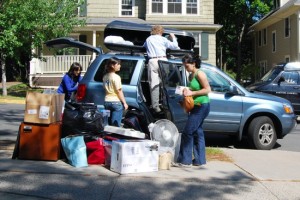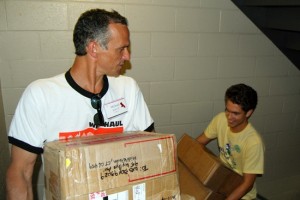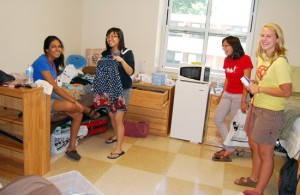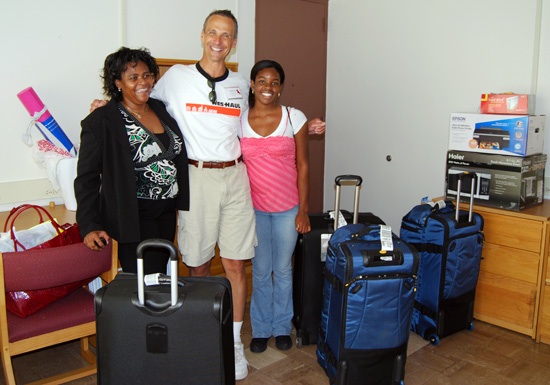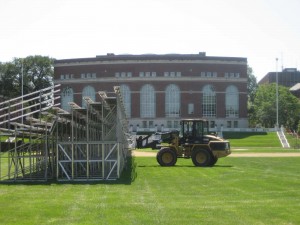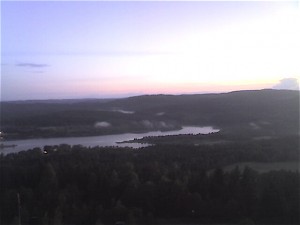Yesterday we welcomed Wesleyan’s class of 2012 to campus. It was a splendid day! Andrus Field was filled with cars and trucks unloading boxes of clothes, books, cds and computers. Many Wesleyan staff members, including this president, donned WESHAUL t-shirts and helped our new families carry luggage to their new dorms. I met parents, grandparents and friends who were (anxiously) helping their students set up their rooms. In a matter of hours they would be heading home, and the students would be (eagerly) beginning their Wesleyan careers.
This is such an exciting time. Most students come to Middletown with a wide variety of interests. They want to study music and math, economics and poetry; they want to participate in athletics and theater, in politics and in religious practice. When I meet the new students, I often ask what they intend to study. It might be more efficient to ask what they don’t want to study. The Wes frosh are intensely curious and eager to engage. We will engage them.
Here are a few facts about 721 members of the class of 2012. It’s a class filled with academic distinction. More than three-quarters of the class have already done advanced work in mathematics, lab sciences and foreign languages. 17% of them come from the Western states, and 11% have their primary residence outside the country. About 6% of the class has a parent who graduated from Wes, and 16% are first generation college students. This year we’ve welcomed the largest group of international students (9%) to campus. They come from India and Ghana, Bulgaria and New Zealand — and many points in between.
For the rest of the week, the class of 2012, new transfer, exchange students and graduate students will be learning the ropes at Wes. They will meet with their advisors, make new friends, and begin to explore Middletown. Over the weekend, the rest of the Wesleyan student body will join them. Classes get underway Tuesday. I am still tinkering with my “Photography and Representation Syllabus,” but it has to be ready for distribution Sept 2. I can hardly wait until we are fully underway. It’s going to be a great year!
PS: Here’s a link to my Chapel talk to new Wesleyan families
http://www.wesleyan.edu/president/speeches/2008/arrivalday_0809/index.html
[tags] Class of 2012, WESHAUL, speech, back to school [/tags]



